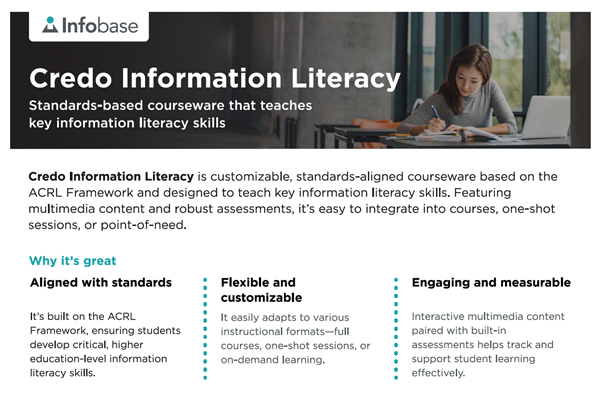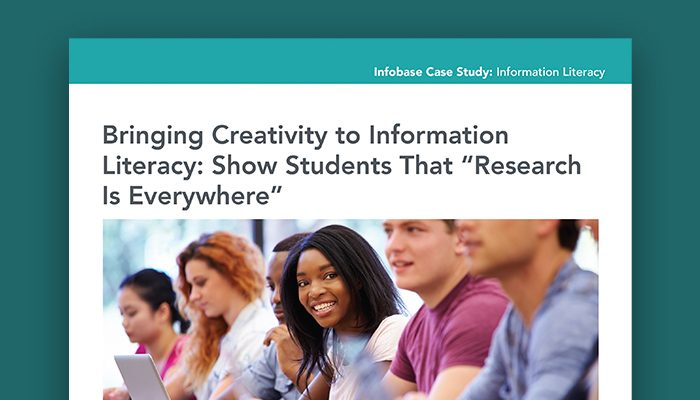What is it?

Credo Information Literacy is customizable, standards-aligned courseware based on the ACRL Framework and designed to teach key information literacy skills. Featuring multimedia content and robust assessments, it’s easy to integrate into courses, one-shot sessions, or point-of-need.
Build your library

Core
Tools for libraries to conduct formalized ACRL and AAC&U-aligned instruction.
Related solutions:
- Information Literacy – Health Science
Why it's great
Aligned with standards
It’s built on the ACRL Framework, ensuring students develop critical, higher education–level information literacy skills.
Flexible and customizable
It easily adapts to various instructional formats—full courses, one-shot sessions, or on-demand learning.
Engaging and measurable
Interactive multimedia content paired with built-in assessments helps track and support student learning effectively.
Research and inquiry tools
Courseware Solutions
Robust digital learning modules are grounded in instructional design frameworks and include comprehension assessments.
Studio Editing
This editing tool allows admin users to change the text of tutorials and assessments to match local terminology and needs.
Question Bank
A bank of hundreds of information literacy questions can populate assessments to best match institutional requirements.

I started by looking for materials to use in my workshop on finding topics—I went straight to the [InfoLit – Core] and easily found links to videos and tutorials that would be perfect for those sessions.”
Brandy Burbante, Nicholls State University
Have questions? Want to see a demo? Connect with an expert however you like: email, phone, video, or in person.

